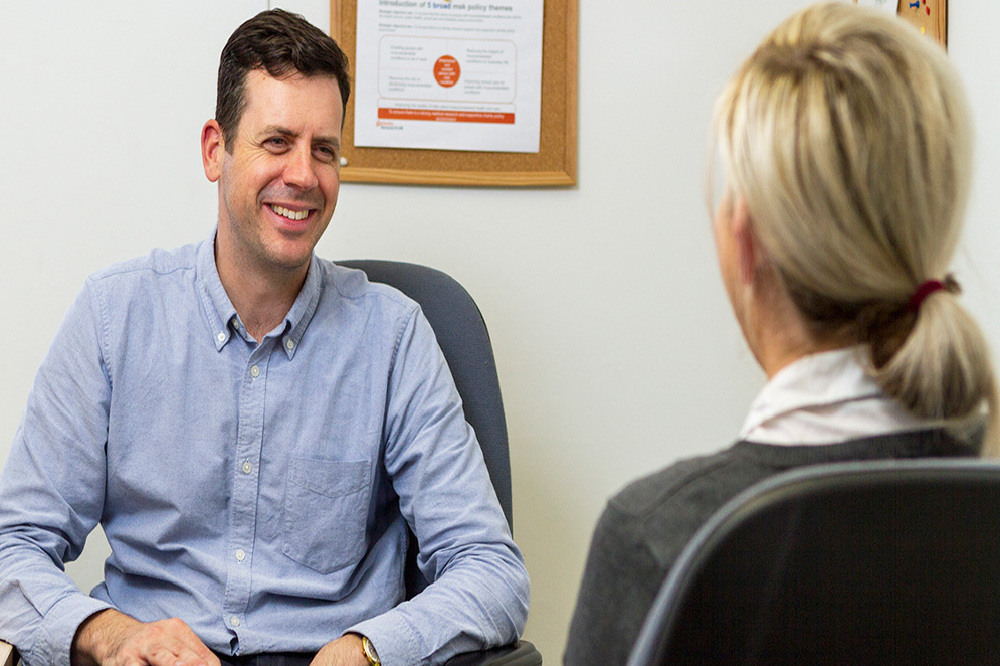A recent published study by Imperial College London with Arthritis Research UK and the University of Aberdeen unveiled that nearly 28 million adults in the UK are affected by chronic pain. In addition, there are over 100,000 GP consultations every day in the UK about a joint and musculoskeletal problems, sadly affecting more women than men.

GP Tom Margham
Joint pain can be really difficult to articulate with your GP and getting the most out of the consultation can be challenging. Productive time with your doctor discussing your symptoms and concerns, and going through information that helps you better understand your joint pain, can make a huge difference.
Arthritis Research UK spokesperson, GP Tom Margham shares his five top tips for a successful consultation discussing joint pain.
1. Preparation
GPs usually only get 10 minutes to spend with you, so be prepared. Write a list of questions to take with you and tick them off during your consultation. Keeping a diary of symptoms you experience in between consultations will help your doctor get a full picture of how your joint pain affects you. Many GP surgeries will offer double appointments (20 mins) if you have a lot of things you would like to discuss.
2. Ask questions
It may be difficult to take in all the information. If you don't understand something your doctor says, ask them to explain or repeat it. Don't be afraid to repeat back your understanding of what's been said or ask for some written or printed information to take away with you. The following questions are a really helpful prompt in the consultation:
- What is my main problem?
- What do I need to do?
- Why is it important for me to do this?
You may also want to ask about the different options to manage your pain and where to go for more information.
3. Be open and honest
You know your body better than anyone else, so don't be afraid to express your thoughts and opinions with your doctor. As part of their training, GPs are prepared to deal with intimate and uncomfortable subjects and will probably do so every day. They'll understand any embarrassment you may feel and will support you.
4. Be clear on next steps
It's important that you leave the consultation fully understanding what your next steps are. This could involve arranging a follow-up appointment if things don't improve or further tests and investigations.
5. Help yourself
Hopefully, you'll have received helpful information and advice from your doctor. Your GP may also give or guide you to trusted information relevant to you.
Drawn from 80 years of ground-breaking research, Arthritis Research UK has produced an information guide to help you manage your joint pain more effectively.
To order your free Joint Pain Relief guide, visit www.arthritisresearchuk.org/jointpainrelief today.
Tagged in Health

